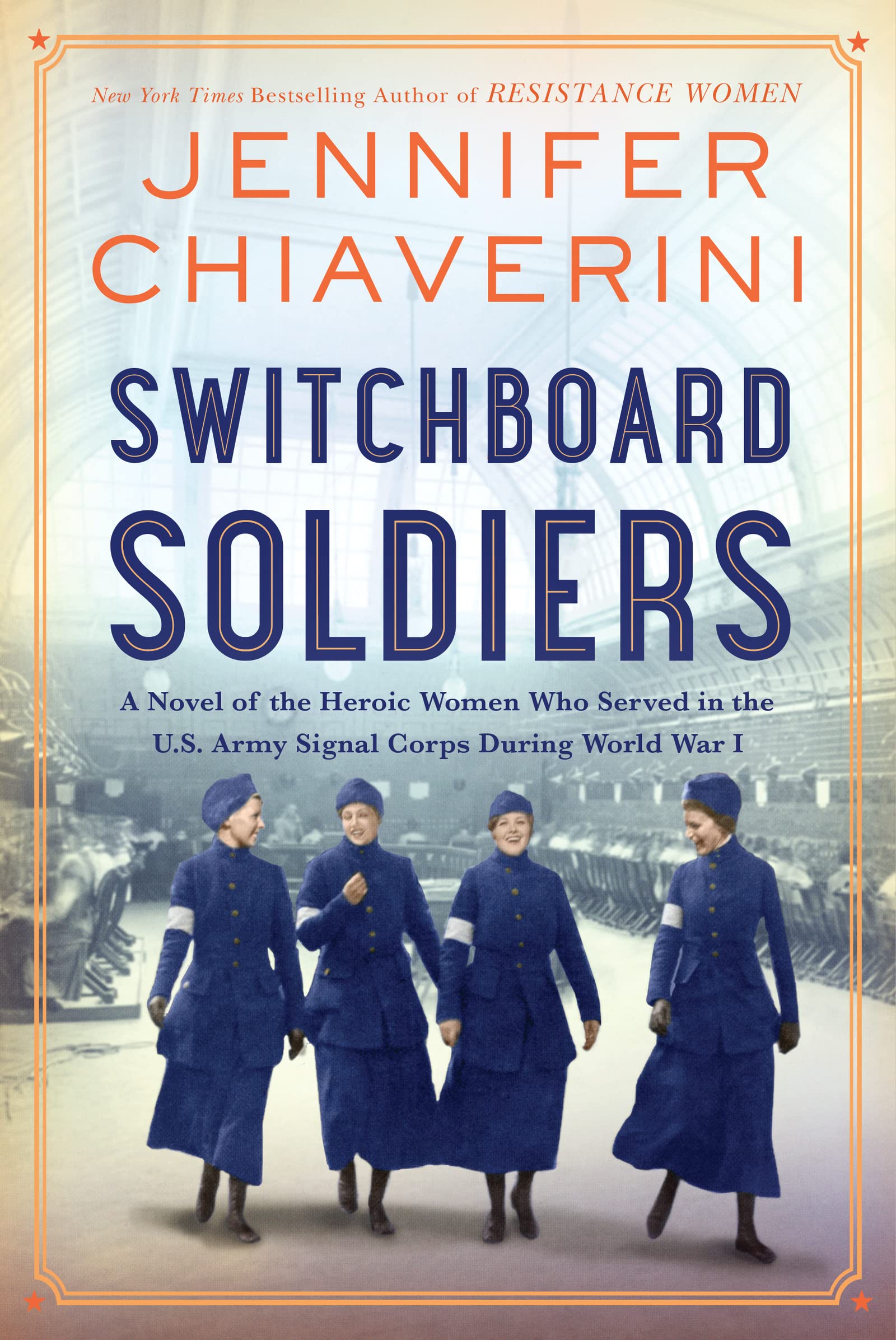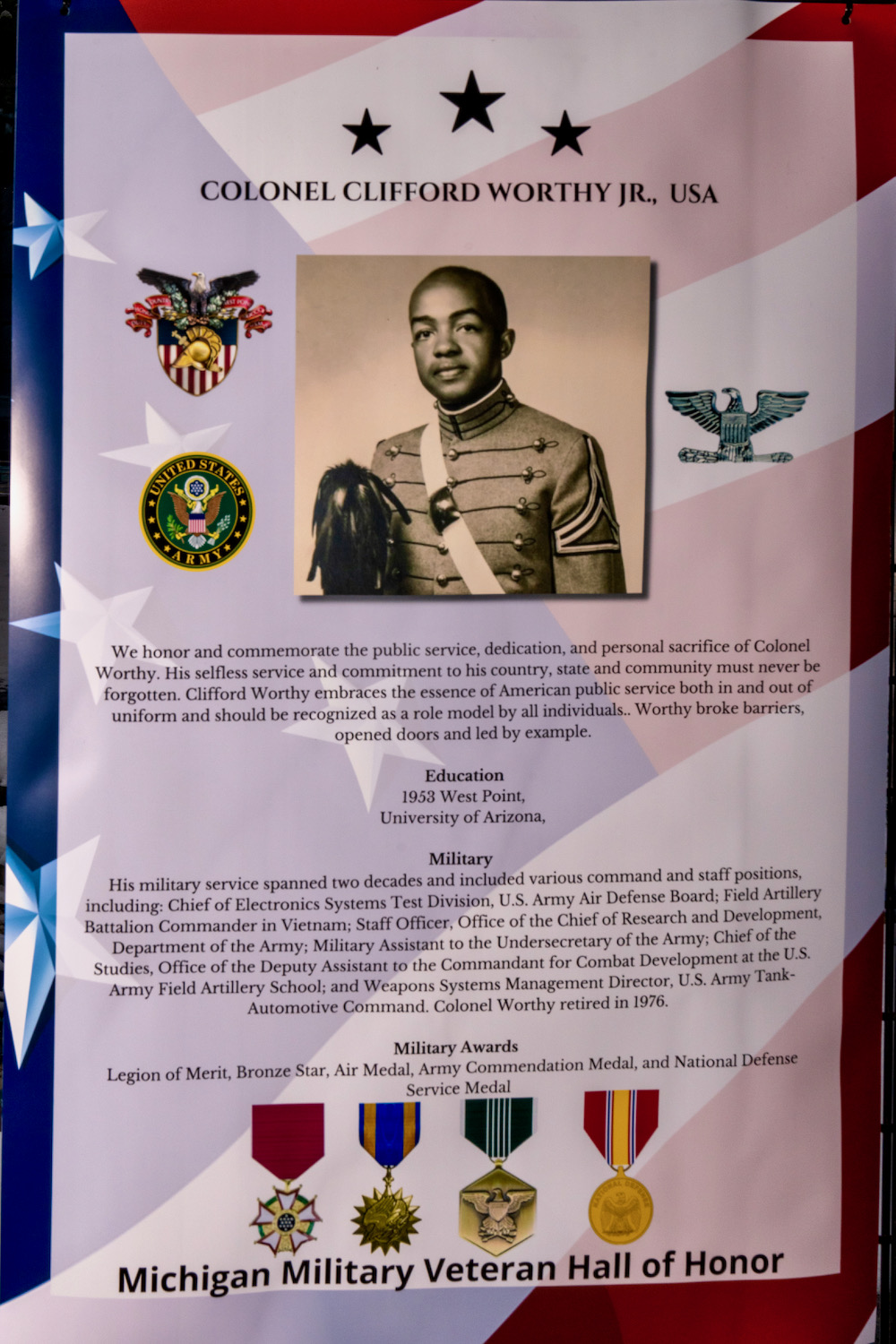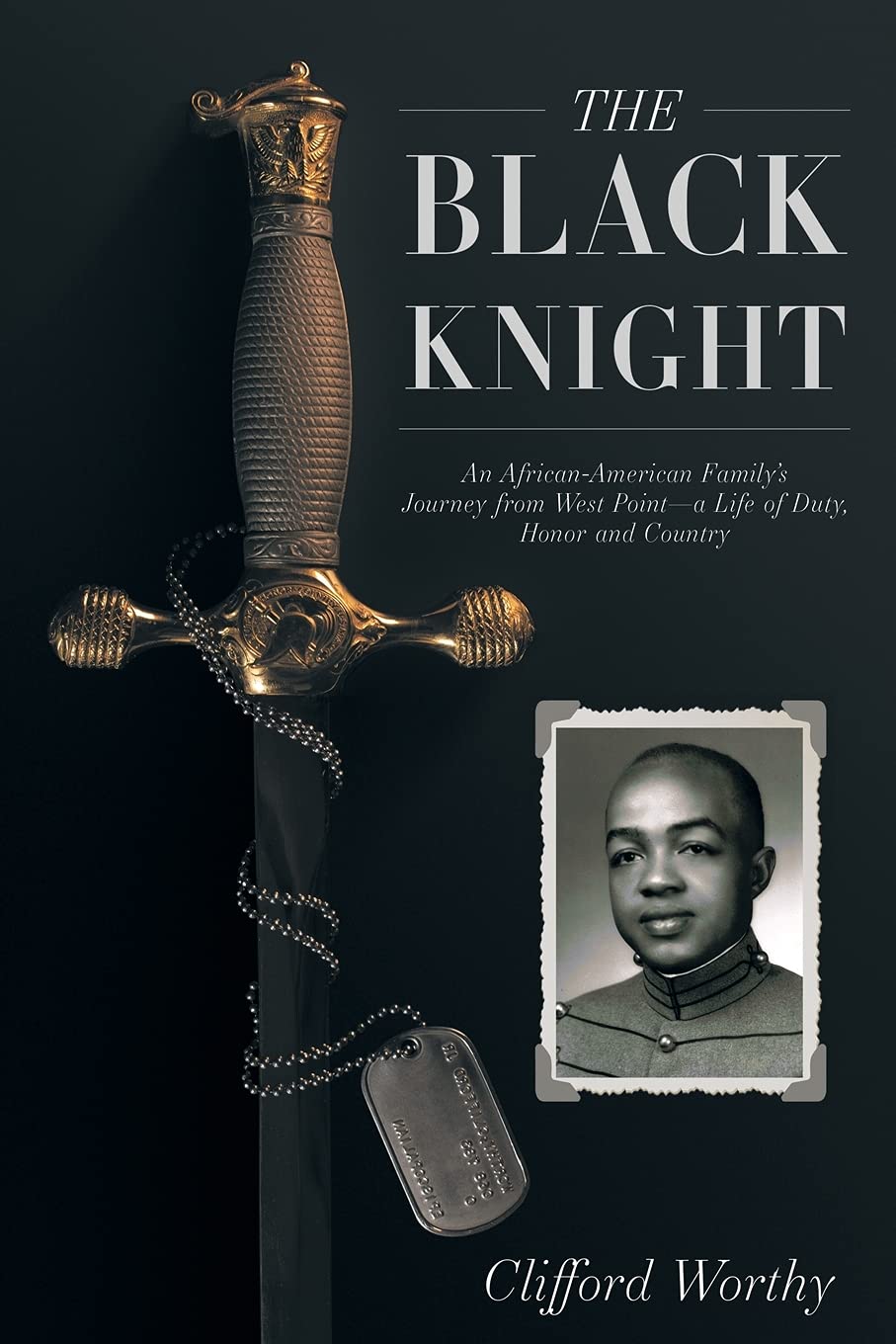
APPLAUSE as Col. Clifford Worthy, seated at left, is called to rise and be recognized at the recent 2022 Michigan Military Veterans Hall of Honor induction ceremony at the Michigan Historical Museum in Lansing.
.
By DAVID CRUMM
Editor of Read The Spirit magazine
Col. Clifford Worthy—the oldest living African-American graduate of West Point whose ground-breaking story is told in his memoir The Black Knight—was honored at the Michigan History Museum by induction into the Michigan Military Veterans Hall of Honor.
At his publishing house, our entire team of editors and authors is celebrating this good news along with Col. Worthy, his family and friends.
The mission of the Michigan Military Veterans Hall of Honor program is to highlight Michigan citizens who have served in the U.S. armed forces and are models of courage and leadership—and civic involvement after they retired from active service.
Most importantly, “the Hall of Honor inductions want to recognize individuals who have overcome obstacles and faced adversity,” said U.S. Navy Capt. Paul Ryan (retired), who serves as the Hall of Honor vice president and spokesman.
As readers learn in The Black Knight, Clifford Worthy, the great grandson of slaves, was one of the few African-American men of his generation who was accepted and excelled as a Black Knight of the Hudson, a traditional nickname for West Point cadets. He entered the academy shortly after President Truman signed the July 26, 1948, executive order banning segregation in U.S. armed forces. In the book, Col. Worthy describes his journey to West Point, the many challenges he overcame both in his family and in the U.S. Army, including service in the front lines of Vietnam.
Rick Forzano, former Head Coach of the Detroit Lions praises Worthy’s example to all of us. “He has fought his way through virtually every stage in life with his faith in God giving him the necessary strength and courage,” Forzano writes.
And at the Michigan Historical Museum, Col. Worthy was not alone as a groundbreaker in this year’s induction ceremony.
Another was Joseph B. Anderson Jr., a Black West Point graduate who followed in Col. Worthy’s footsteps at the military academy in the 1960s and then also served in Vietnam. He became famous, while serving in Vietnam, for participating in an Oscar-winning documentary about the war, The Anderson Platoon. Later, he taught at West Point and served in the White House staff.
A Groundbreaking ‘Switchboard Soldier’
 One of the most remarkable stories shared at the ceremony involved a posthumous honoree: Oleda Joure-Christides, who served in the World War I Army Signal Corps as a telephone operator. The invaluable service provided by Joure-Christides and more than 30 other female operators is told in a newly published historical novel by Jennifer Chiaverini, Switchboard Soldiers, published by William Morrow.
One of the most remarkable stories shared at the ceremony involved a posthumous honoree: Oleda Joure-Christides, who served in the World War I Army Signal Corps as a telephone operator. The invaluable service provided by Joure-Christides and more than 30 other female operators is told in a newly published historical novel by Jennifer Chiaverini, Switchboard Soldiers, published by William Morrow.
“Her story is fascinating,” Ryan said. “She was born in 1897 in Marine City, Michigan. When Gen. John Pershing, who commanded the American Expeditionary Forces, got over to Europe—he realized the importance of fast communication between headquarters and front-line troops. The problem was the Army didn’t have trained telephone operators. So, the call went out in the U.S. for telephone operators to join the Army—and most of those operators were women.
“At age 19, Oleda Joure-Christides was working for Marine City Bell Telephone as their chief operator. She signed up and joined what became known as the Hello Girls Brigade in the U.S. Army Signal Corps.”
Not only was that ground breaking in terms of her gender—and also the technology she was helping to pioneer in the battlefield—but Joure-Christides had to help break down another major barrier after the war.
“And that’s the part of her story where we think about her perseverance in the face of adversity,” Ryan said. “All female members of the signal corps were demobilized with a service termination letter instead of an official discharge. They had been every bit a part of the Army Signal Corps, but they didn’t get that official discharge. As a result, they were denied veterans rights and benefits. This was an injustice that took many, many years to correct.”
As a result of Joure-Christides’s participation with other veterans of that service in letter writing campaigns and lobbying of Congress, a 1978 law finally corrected that injustice dating to World War I.
Joure-Christides lived to see that, before she died in 1984.
To all of the 2022 Hall of Honor honorees, their friends and families, all of us at this publishing house say: Congratulations!
.
.
Care to learn more?

Click on this photo of the new plaque honoring Col. Clifford Worthy to see a larger version that’s easier to read.
Get a copy of Col. Worthy’s life story, The Black Knight, for yourself—and order more copies for friends and loved ones on your holiday shopping list who are especially interested in stories from our U.S. armed forces. There are many themes in this illustrated memoir, including the challenges Col. Worthy and his wife faced raising a special needs son in an era when professional help for such families was in its infancy.
Col. Worthy’s life, his memoir The Black Knight and his poetry are rich in references to African American traditions in family and faith—including essential shared experiences like The Great Migration and centuries of Black church and family reunions. If you are not an African-American reader, you will experience his writing at a deeper level if you also have a copy of the Michigan State University School of Journalism’s 100 Questions and Answers about African Americans and 100 Questions and Answers about the Black Church.

